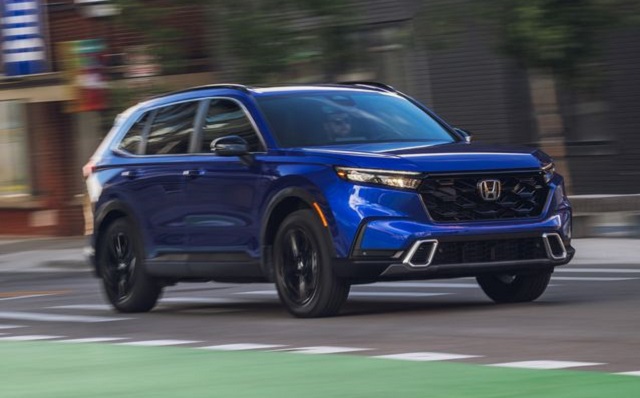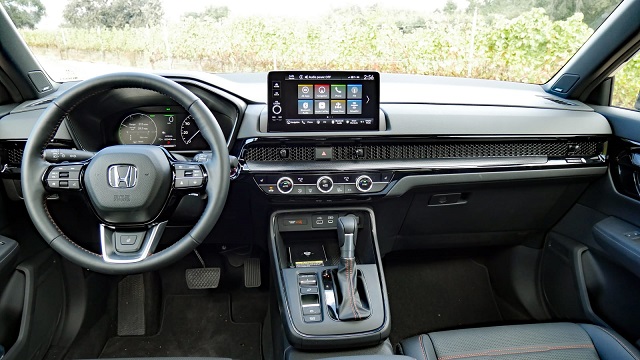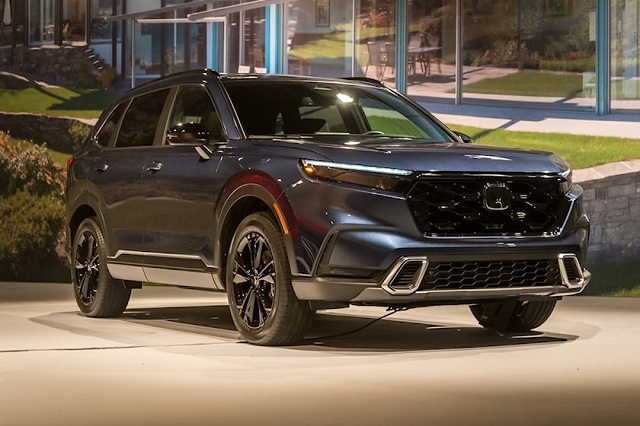Honda has been a trailblazer in the field of hydrogen fuel cell technology for a long time, and the company is continuing to push the envelope with its latest offering. While Honda has fallen behind some of its competitors in the realm of battery-electric vehicles, it remains one of the most advanced car manufacturers in the world when it comes to fuel cell technology.
The latest vehicle in Honda’s hydrogen lineup is the 2024 Honda CR-V Hydrogen Fuel Cell SUV, which is set to replace the previous-generation Clarity. Unlike the Clarity, which was a sedan, the new model is a crossover SUV that promises to be one of the most versatile vehicles on the market in terms of its power source.

2024 Honda CR-V Hydrogen Powertrain
While details about the new model are still scarce, Honda has announced that it will be significantly cheaper than its predecessor. The company is also combining two different technologies to create a more versatile powertrain. In addition to the typical fuel cell setup, which turns hydrogen into electricity to power electric motors, the CR-V will also feature a rechargeable battery that can be charged via cable. This combination will give the vehicle better autonomy and make it more versatile, as it can use two different sources of power.
The new powertrain will be a significant improvement over Honda’s previous offerings, as it will be more versatile and more affordable. The company claims that it has achieved the next level of development with this technology, using new materials and technical solutions to make the system about two-thirds less expensive than previous iterations.

2024 Honda CR-V Hydrogen Design
Aside from the powertrain, the new CR-V will feature a typical CR-V design, with all the benefits of the recent overhaul. The vehicle will have a new, bolder and more elegant styling, as well as upgrades in terms of ride quality and driving experience. The interior will also be spacious and comfortable, although some space may be compromised due to the battery, hydrogen tanks, and other components.
One of the biggest advantages of Honda’s latest achievements in fuel cell technology is that the new system will be shared with other manufacturers, particularly those who produce commercial vehicles. Dongfeng Motors in China is already testing its trucks with this technology, while Isuzu is set to begin testing next year. Honda plans to start selling the technology to its partners by the mid-2020s.

Pros and Cons of Hydrogen Technology
One of the advantages of the CR-V Hydrogen is its low maintenance requirements. Hydrogen fuel cell technology is much simpler than traditional gas-powered engines, which means that the car requires less maintenance and has a longer lifespan. This can result in significant cost savings over the life of the vehicle, making it an attractive choice for budget-conscious consumers.
There are also some potential drawbacks to CR-V Hydrogen. One of the most significant challenges facing hydrogen fuel cell technology is the lack of infrastructure. There is currently only a handful of hydrogen fueling stations in the United States, which makes it challenging for drivers to refuel their cars.
In conclusion, while Honda may be lagging behind some of its competitors when it comes to battery-electric vehicles, the company remains at the forefront of hydrogen fuel cell technology. The 2024 Honda CR-V Hydrogen Fuel Cell SUV promises to be a significant improvement over its predecessor, with a more versatile and affordable powertrain that combines two different technologies. With the added benefit of sharing this technology with other manufacturers, Honda is continuing to push the boundaries of what is possible in the realm of fuel cell vehicles.